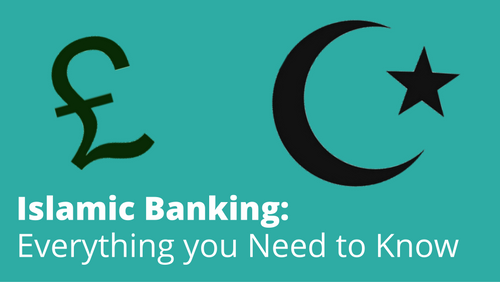Your read progress
Islamic Banking: What You Need to Know
4 minute read
Updated 17th September 2025 | Published 22nd December 2016

Islamic, or Sharia banking is a growing market in the UK, growing at an average rate of 17% between 2008 and 2012. But what is it, and how does it differ to traditional banking?
Islamic banking: what are the principles?
Simply put, Islamic, or Sharia banking is a way of obtaining and providing finance that abides by Sharia law. Though the intricacies of Sharia Law and how closely a muslim decides to follow the laws are often a personal decision, at its heart, the main principles of Sharia banking are fairly straightforward:
- Avoidance of all interest charges which are haram (forbidden)
- Muslims are forbidden from investing in companies which deal with pork products, gambling, alcohol related businesses, or pornography.
- Ambiguity (gharar), or an unknown return on investment, and gambling (maysair) are also forbidden under Sharia Law.
- Any risk must be shared between at least two parties
Most non-Islamic lenders and borrowers can only operate due to lenders making money from interest gained from those borrowing, so obviously Islamic banking poses a unique set of challenges.
When did it begin?
Commercial Islamic banking in the UK has been around in one form or another since the early 1970s, but the first truly Islamic Bank in the UK obtained its license in 2004. There are now several dedicated banks offering Islamic banking in the UK.
Dedicated Islamic Banks in the UK
Britain has more dedicated Islamic banks than any other Western country, and was the first non-Islamic country to adopt them. There are currently five fully compliant banks in the UK.
Fully Sharia Compliant Banks in the UK
- Abu Dhabi Islamic Bank
- Al Rayan Bank
- Bank of London and the Middle East
- Gatehouse Bank
- QIB
Many UK banks also offer Sharia compliant products and specific services for Muslims, including Barclays, and RBS. Lloyds also offers an Islamic current account which pays and charges zero interest. The UK also has a special Islamic index on the London Stock Exchange for Sharia compliant businesses. It’s a growing area, and it’s not just for Muslims, anyone can choose to bank this way.
Growing fast
A 2016 report from EY found the total Islamic banking market to be worth around £747bn, with a projected growth to £1.3tn by 2020. A knock-on effect is that Islamic banking is creating a growing number of jobs in this specialist sector, too.
Compliance in the UK
Central to Islamic banking is the notion that money has no intrinsic value and therefore making money from money (i.e. interest) is not allowed. However, in Sharia law, legitimately trading assets in a useful way can be used to procure wealth.
How Sharia banking works
By remembering that in essence, all forms of interest are forbidden, some workarounds can be constructed. There are five main ways in which business is done, while still maintaining the principles of Sharia:
Ijara
Is a method of leasing whereby a bank buys an asset and then leases it back to a customer over a specific timeframe.
Ijara-wa-Iqtina
Is similar to Ijara, except that at the end of the specific timeframe, the customer has the option to purchase the item. This can be used in a buy-to-rent scenario, or as a mortgage alternative.
Musharaka
Often used to finance working capital, this describes multiple parties contributing to financing a venture. Profits, and similarly, losses, are calculated as predetermined ratios based on how much a single party contributes. This is because in Islam, “one cannot lose, what they did not contribute”.
Murabaha
Is simply a form of credit in which another party pays outright for an asset, which is then loaned back to the customer. A charge for doing so is predetermined by both parties, rather than interest. This is used in place of traditional loans and interest accrued on them.
Mudaraba
Is a specialist investment where one party contribute money, and the other provides work (typically investment advice). Any gains, or losses, from the initial money, are shared by both parties.
Conclusion
Even for the dedicated Muslim, Islamic banking can be a tricky area to fully comprehend. However, as with all forms of banking, by carefully taking note of terms and conditions, fees, and product details a favourable product offering can be obtained.
While there is still no UK “kitemark” for Sharia compliance in financial products, it is important that any customer carefully considers whether a product meets the requirement of their faith or not. One way to do this is by reading our Islamic banking reviews on Smart Money People to see what others have to say about the companies they deal with.
Or if you wish to express your own views on an Islamic financial product you currently use, or have used, please leave a review of your own and help others find the best Islamic banking products in the UK today.
Written by Smart Money People Team
As Featured By
Join our mission
We use the power of consumer reviews to help increase trust and transparency in financial services and to deliver industry leading insight and events.
Write a reviewExplore our other topics

News: Awards

News: Industry news

News: Smart Money People news

Guides: Smart money guides

Guides: Smart money tips

Guides: Business guides

Blogs: Money choices

